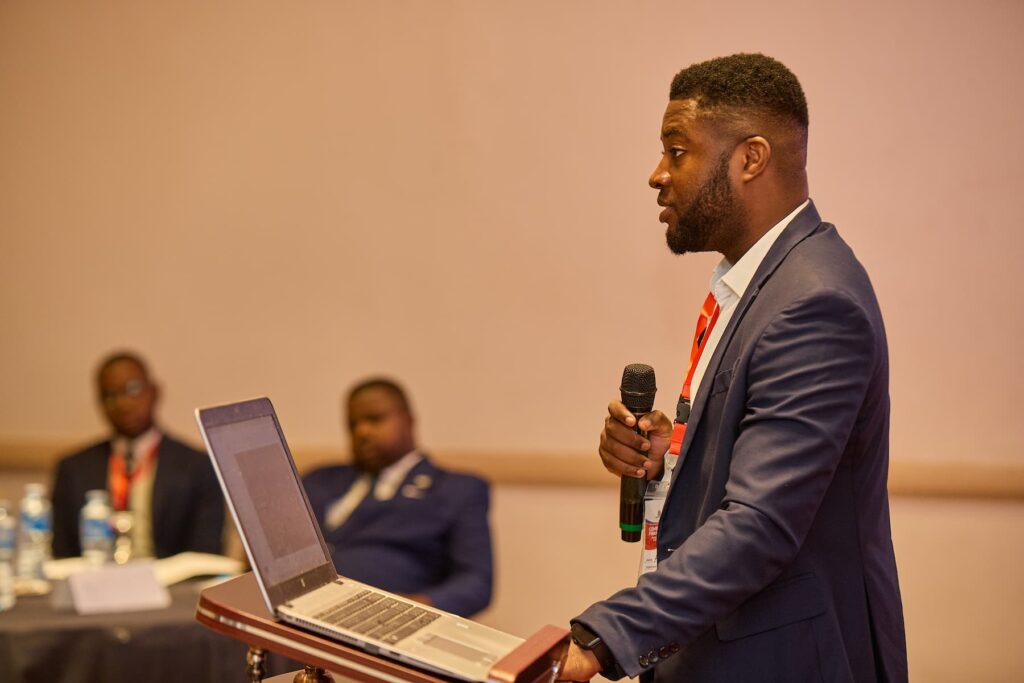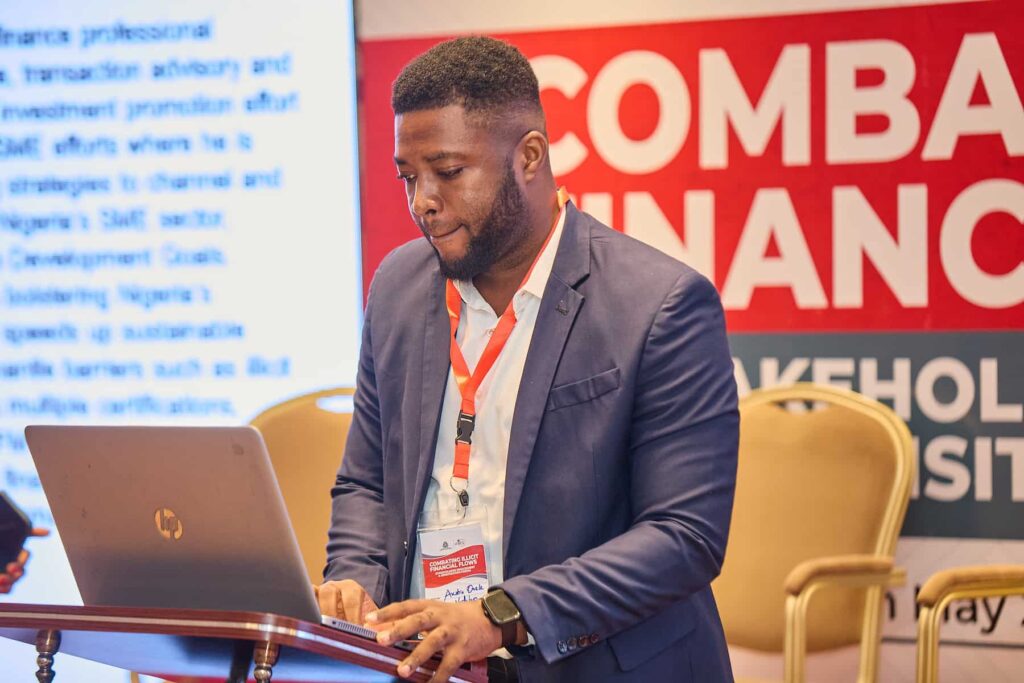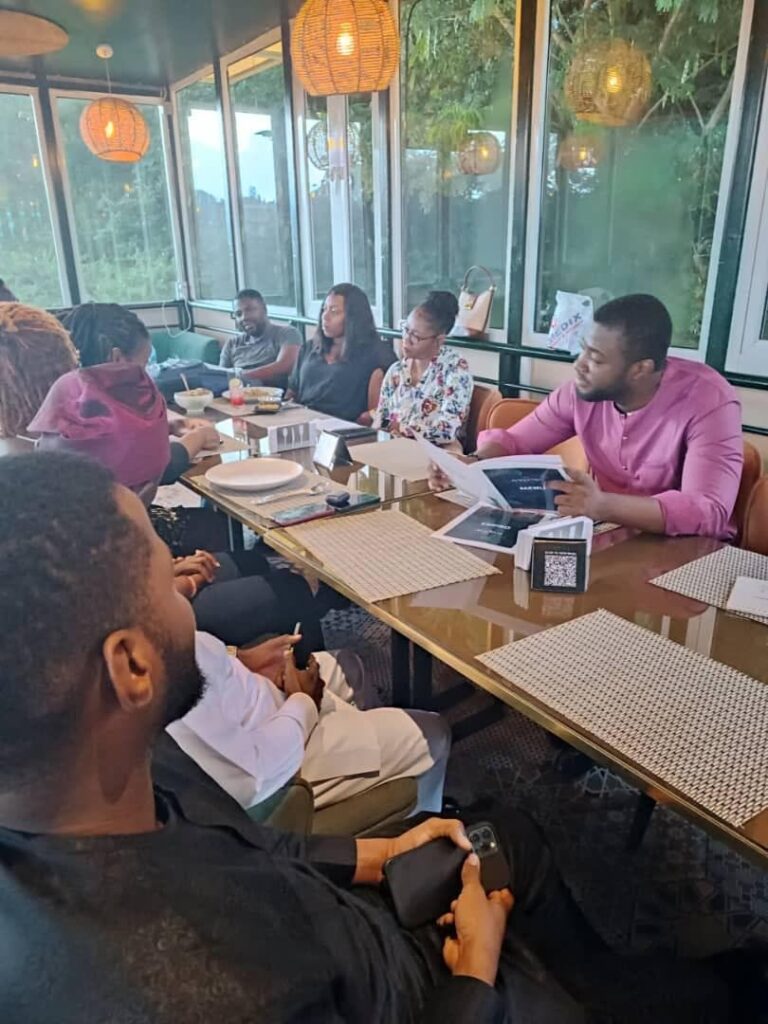
Austin Onele | Project Finance Specialist | Vidaho
Austin Onele’s journey into finance began in Lagos, Nigeria, where he witnessed firsthand the challenges that macroeconomic instability and limited financial access posed for small family-run businesses. These early experiences planted a deep belief in him—that finance could be a bridge to support entrepreneurship and turn ambitious plans into lasting success. Driven by this conviction and a natural gift for numbers, Austin charted a path that would take him from solving technical engineering problems to unlocking millions of dollars in capital for infrastructure and businesses across Nigeria. At EliteX, we are proud to have Austin Onele as part of the edition: Prominent Finance Leaders in Africa, 2025.
His passion for numbers emerged early. In 2004, he placed among the top three students in the Nestlé Milo Mathematics Competition. Later, in 2011, he ranked among the top 50 nationwide in the Promasidor Cowbell Mathematics Competition. These achievements reflected his strong analytical skills and laid a firm foundation for his academic journey. He went on to study Petroleum Engineering, earning a B. Eng degree, and during this period, he discovered a love for solving complex problems. This passion led him to an early role at Total E&P (now TotalEnergies) as a Gas Strategy Analyst.
“Real transformation will come when long-term pension funds and insurance capital are channeled into infrastructure and MSMEs.”
While working deep in Nigeria’s energy sector, Austin had a revelation. The biggest challenges were not always technical. Rather, it was the financial design behind energy projects—how to structure viable finance models, reduce risks, and attract capital—that determined whether a project would succeed. This realization led him to shift focus from engineering to finance.
Austin entered the world of investment banking and infrastructure finance, working with firms like BAS Capital Group, the Lagos Business Angel Network, and Ratio Consulting. His work covered a broad range of projects—from solar plants and gas infrastructure to analyzing concession agreements for port authorities. He also earned certifications like the FMVA® (Financial Modeling & Valuation Analyst) and AFM (Advanced Financial Modeler), sharpening his technical skills to better design and deliver bankable projects. A career-defining moment came when he secured $2 million in debt financing for a microfinance institution. This deal resulted in real impact: homes were powered with electricity, small businesses gained the capital they needed, and basic services became available to more people. From that point, finance became more than a profession—it became a mission.
Austin’s career continued to grow as he worked across all sectors in Nigeria. He supported public and private clients with technical advice, investment strategies, and transaction support. His role at USAID’s Power Africa Nigeria Power Sector Program as a Transactions Advisor allowed him to mobilize over $1.3 billion in private capital for energy projects. But the experience also revealed a critical gap—Nigeria needed better transaction advisory and project finance support, especially for infrastructure and SMEs.
This realization inspired Austin to establish Vidaho Group, a firm that combines advisory services with project development. Vidaho’s mission is to support high-impact capital projects and unlock $50 million in private investment for Nigerian SMEs and infrastructure. Through this platform, Austin channels his expertise and vision into tangible outcomes for development across the country.
Over the past decade, Austin has witnessed a significant transformation in Africa’s financial landscape. From the early 2000s, when growth was largely driven by strong commodity prices, the continent has moved toward a more diverse and resilient financial ecosystem. Foreign direct investment surged from $10 billion in 2000 to over $50 billion by 2014, reflecting growing investor interest in Africa’s expanding markets. However, global shocks like the COVID-19 pandemic and geopolitical tensions have challenged this momentum. One of the most important shifts has been the rise of FinTech and digital finance. Mobile platforms like M-Pesa, Opay, and Moniepoint have increased financial inclusion, offering services that range from payments to loans and insurance. In 2024 alone, digital wallets added approximately $190 billion to Africa’s GDP. East Africa, with Kenya at the forefront, has led this revolution, but West Africa and other regions are quickly catching up due to more open regulations.
Africa’s debt landscape has also evolved. By 2022, external debt reached $1.1 trillion. While loans from bilateral sources such as China have decreased in proportion, commercial borrowing now makes up 43% of the debt. Rising debt-servicing costs make it essential for countries to adopt stronger financial stability frameworks, such as the proposed African Financial Stability Mechanism. At the same time, Africa’s formal capital markets have matured. The number of stock exchanges rose from seven in the 1980s to thirty by 2020, with a combined market capitalization of over $1.1 trillion by 2018. Bond markets now offer about $500 billion in funding opportunities. However, balancing growth with responsible debt management remains a key challenge.

“Africa’s financial future lies in blending strong market fundamentals with clear social and economic benefits.”
Looking to the next five years, Austin foresees three major trends. First, digital finance will continue to grow, with artificial intelligence, cybersecurity, and new tools like buy-now-pay-later and mobile pensions playing key roles. Second, governments will prioritize debt sustainability, improve domestic revenue collection, and seek better loan terms, especially with help from institutions like the African Development Bank. Finally, advancements in 5G and data infrastructure will boost productivity in agriculture, health, and logistics through tools like telemedicine, precision farming, and automated supply chains.
To address Africa’s economic challenges, Austin applies several key strategies. One is currency risk management. He structures transactions using natural hedges—matching local currency revenue with local currency debt—and works with regional banks to include currency planning at the earliest stages of a project.
To handle inflation, he helps clients include clauses in contracts that adjust with inflation, using indicators like CPI or commodity prices to keep projects viable. He also promotes flexible funding models. In tough economic times, liquidity can be hard to find, so Austin structures deals using multiple sources—syndicated loans, private equity, venture capital, and concessional financing. He also works with multilateral institutions to ensure a backup plan exists when commercial funding is unavailable. For each major deal, Austin relies on scenario-based planning. He builds several financial forecasts—optimistic, baseline, and stress-tested—to prepare for different exchange rates, inflation levels, and demand scenarios. This method helps decision-makers stay informed and builds trust among investors.

When choosing where to invest in Africa, Austin focuses on sectors that show high growth potential and social impact. FinTech tops the list. With Africa on track to become the most populous continent by 2030, the demand for digital financial services—especially credit, pensions, and insurance—will grow. Digital payments are expected to reach $1.5 trillion, and FinTech revenues could hit $47 billion by 2028. Energy is another high-potential sector. Africa needs about $190 billion annually to meet its energy goals. The continent’s vast solar and gas resources, paired with increasing support for green energy, make it a prime area for sustainable investments.
Agriculture is set to grow as well. With nearly half of Africa’s workforce engaged in farming, improvements in commodity trading, mechanization, and AgriTech can have broad benefits. Meanwhile, infrastructure development—especially roads, ports, and data networks—remains a key priority. High transport costs affect every industry, so improving infrastructure can unlock broader economic growth.
Throughout his career, Austin has adopted leadership principles that reflect clarity, excellence, and collaboration. He focuses not only on results, but also on maintaining high standards and transparent processes. In large projects, he brings together stakeholders from government, the private sector, and local communities, ensuring that all voices are heard. By building consensus early, he ensures projects have the support they need to succeed.
Leadership also means developing others. Austin has mentored over 50 finance professionals and works closely with local organizations to promote financial literacy and build technical skills. His goal is to strengthen institutions and empower future leaders. He believes that young professionals need both technical and soft skills to thrive. Financial modeling, report writing, and digital tools are essential, but so are communication, teamwork, and a strong work ethic. To help nurture these skills, Austin supports a community of over 1,000 financial analysts and delivers training in project finance and transaction advisory. He also runs initiatives that connect Nigerian SMEs with funding, mentoring, and capacity-building.
“I structure transactions with natural hedges—matching local revenues with local debt—to protect against currency shocks.”

From the viewpoint of global investors, Africa’s financial markets offer great potential, but challenges such as unstable currencies, unclear policies, and low liquidity remain concerns. Austin has observed that international investors want clear data, predictable policies, and streamlined regulations before committing funds. To build trust, Austin recommends improving transparency through standardized reporting and accessible market data. Legal frameworks must be robust and fair, including strong protection for creditors and efficient licensing systems. He also supports the expansion of local-currency bond markets and financial instruments that reduce foreign exchange risk.
Tools like political risk insurance, blended finance, and partial credit guarantees can help new investors overcome barriers. Strong public-private partnerships and the success of regional trade agreements like the AfCFTA will present Africa as a unified, investment-ready market. If he could lead one major transformation in Africa’s financial sector, Austin would focus on attracting long-term institutional capital—especially from pension funds and insurance firms—into infrastructure and alternative investments. Currently, high interest rates from commercial banks make borrowing costly. Pension funds, with their long investment horizons, are better suited for financing infrastructure and supporting small businesses.


Austin envisions setting up professionally managed investment vehicles for infrastructure and private equity, led by young professionals with experience and drive. He also proposes policies requiring banks and corporations to direct a portion of their profits into funding MSMEs. This approach would lower the cost of capital, expand financial access, and support sustainable development. His success in the finance sector comes from a unique mix of technical expertise and strategic thinking. Certifications like FMVA and AFM equip him with strong modeling and valuation skills, while his broad experience across sectors has taught him how to manage risk, raise funds, and deliver results. His network includes development institutions, investors, and government agencies, and he uses these connections to secure favorable financing terms and close complex deals.
Austin also shares his knowledge through mentorship and team training, ensuring that the people around him grow and succeed. He believes in creating systems that multiply impact, not just for today but for the future.
At the core of Austin’s story is a message of leadership, innovation, and inclusive growth. He hopes readers understand that finance is not just about numbers—it’s about improving lives. By using case studies, public speaking, and community engagement, he continues to inspire others with his vision of a more resilient, inclusive, and prosperous Africa. Through his work, he invites both professionals and the public to join him in shaping the continent’s financial future.

“Finance became a mission for me when I saw electricity reach homes and small businesses rise because of one deal.”